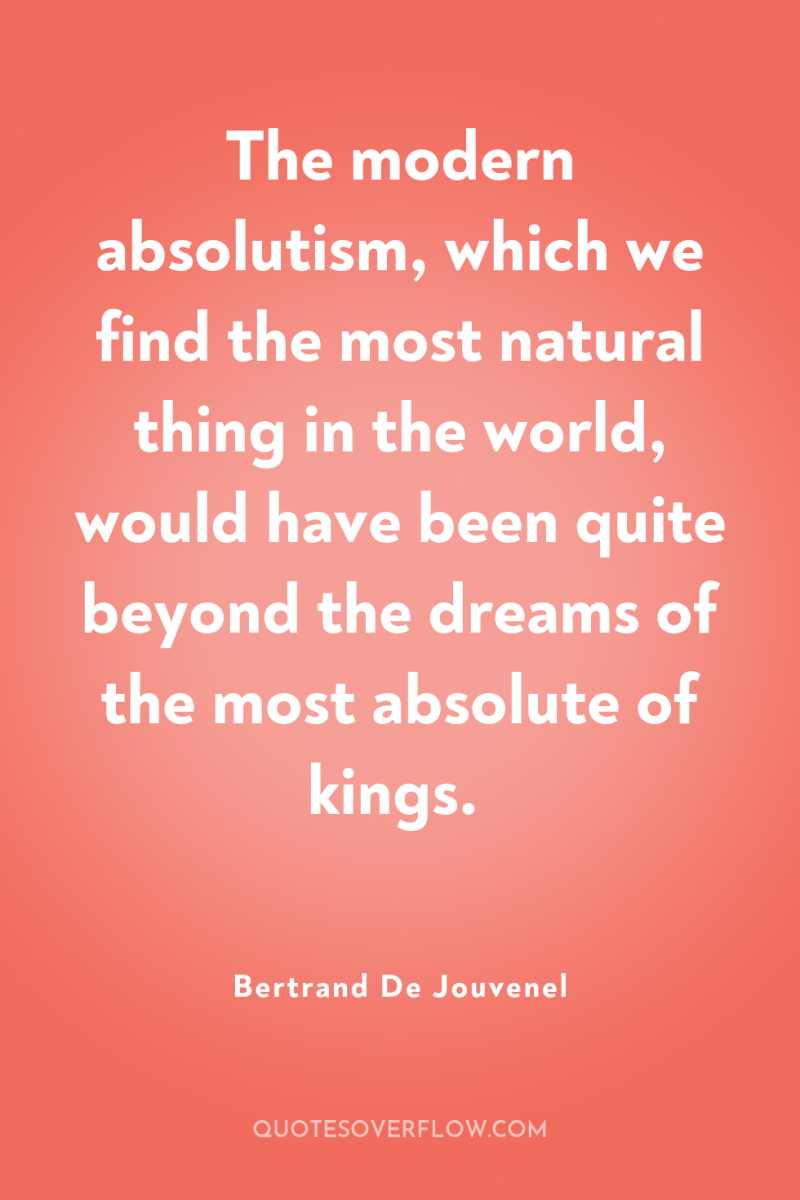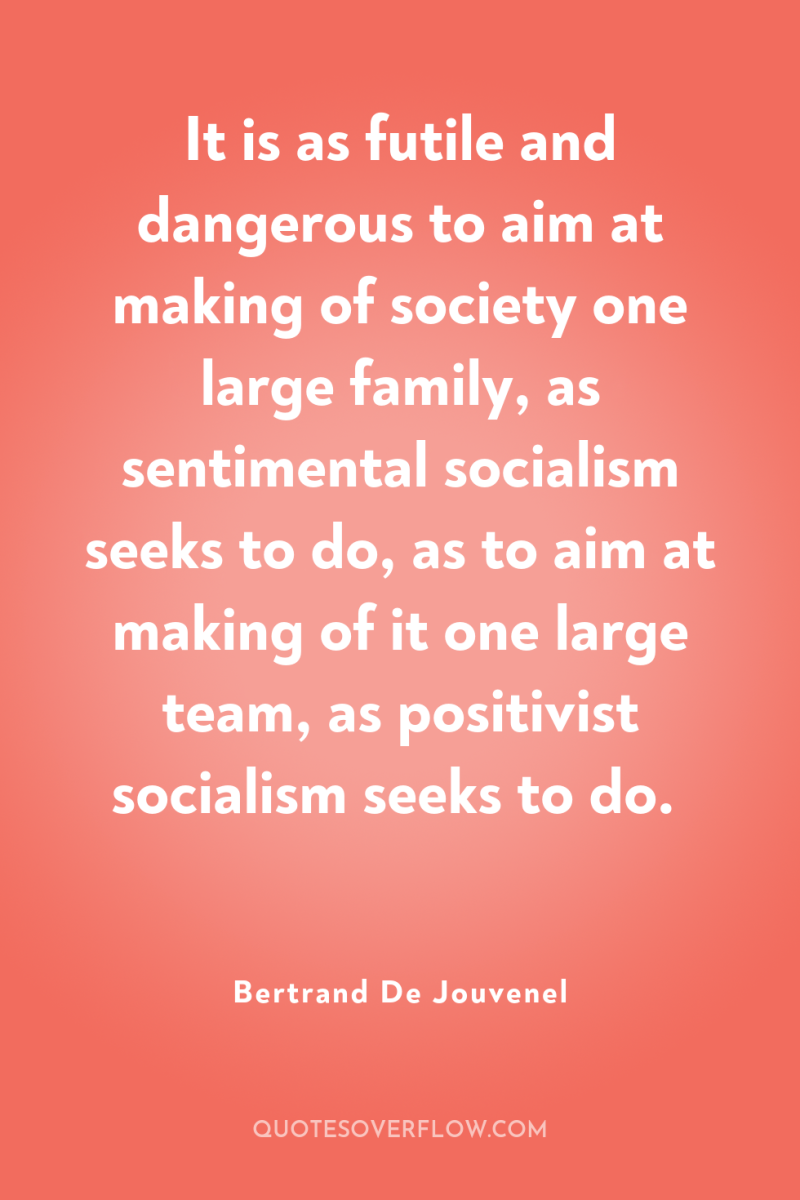1
The entire stock of relationships which suited in war–militiae–was regarded as inadmissible and improper in peace–domi. We have the measure of how right the Romans were in this respect in the experience of the intellectual and moral impoverishment brought about by total mobilisation.Bertrand De Jouvenel
2
These observations bring out the fact that, whenever liberty is regarded merely as the power to do something which it is desired to do, the tyrant need only base himself on the desires of the masses to suppress the liberties cherished by a few. But can anyone fail to see that the very concrete problem here posed is the problem of the sation of satisfactions, and not the problem of liberty at all? How, then, has it come about that we have drifted away from what we were discussing? This is the very definition of liberty which we allowed as our starting-point. Its development makes it clear that the thing discussed does not merit the fair name of liberty. It is certain that every man desires addition to his power and chafes at the obstacles which stand in his way; it is also certain that the quest for a power which is wider binds him to a growing dependence on other men; it is certain, lastly, that this dependence creates a growing tendency to quarrel about distribution. All that is important, but it is the story not of liberty but of human imperialism. And whoever thinks to see the essence of liberty in the power of man is is utterly lacking in any true feeling for liberty.Bertrand De Jouvenel

3
The modern absolutism, which we find the most natural thing in the world, would have been quite beyond the dreams of the most absolute of kings.Bertrand De Jouvenel
4
Rejoicing in his absolute authority, the single egoist will exploit it methodically, whereas a mêlée of egoists will bring about a ruinous disorder and a disastrous cleavage, because the contrariety of the appetites to be satisfied will prevent the satisfaction of any single one. Clearly, then, the effect of the pursuit of private ends under cover of the public good will be worse if there are many with a hand in power than if there is only one.Bertrand De Jouvenel

5
It is as futile and dangerous to aim at making of society one large family, as sentimental socialism seeks to do, as to aim at making of it one large team, as positivist socialism seeks to do.Bertrand De Jouvenel
6
Of all the simplifications to which the human spirit naturally inclines, unable to reconcile itself to the complexity of the real, there is none more dangerous than the attempt to integrate the whole of society in one vast, permanent action group.Bertrand De Jouvenel
7
The man who has dedicated himself to the success of the protect, the master builder, no longer has any freedom: his conduct is now determined altogether by the constraining force of the end. Logically, therefore, he is bound to require at every moment from his companions whatever will best serve that end, and he demands of them imperiously whatever he thinks is of that nature. This imperiousness, though to immediate view that of the master, springs ultimately from the project itself, for it is the project which is in command. In the eyes of those under him, however, it is the master who hustles them, and they think him inhuman by reason of his disregard of their moods and personalities and his inability to see them other than as servants of the project (like himself). .Bertrand De Jouvenel
8
The law of all modern states takes account of associations, whose members, in theory, pursue the common end with equal zeal. The experience of all associations proves, however, that this is not the case, and that a lively, constant and vigorous awareness of the end is found only in a minority of the associates; an association is really rather like a comet–a large tail of docile followers dragged along by a small dynamic head.Bertrand De Jouvenel
9
The more routine that systematised activities are, the more nearly they are of the monotonous character seen in the habits of social animals and the less necessary are master builders; the more novel actions are, the more necessary are master builders. Dislike of the leader and the promoter, though linked emotionally to progressivism, is linked logically to total conservatism. Conversely, an authoritarian approach, natural enough in the instigator of new activities, is unjustified in the mere overseer of routines.Bertrand De Jouvenel
10
The idea so commonly found that scepticism leads to toleration arises from considering the effects of scepticism in the intellectual who takes no active part - not its effects in the man of action. In the man of action, moral relativism and scepticism as to the absolute and universal value of his priunciples are no obstacle to a fanatical belief in their immediate value as his own clan at the actual moment; they do not weaken in the least his will to impose his principles. How should he glimpse a soul of truth in the principles of others, entitling them to respect, when he does not believe in noble origins of this kind even for his own principles? .Bertrand De Jouvenel
11
We are ending where the savages began. We have found again the lost arts of starving non-combatants, burning hovels, and leading away the vanquished into slavery. Barbarian invasions would be superfluous: we are our own Huns.Bertrand De Jouvenel
12
Power changes its appearance but not its reality.Bertrand De Jouvenel
13
Ransack the history of revolutions, and it will be found that every fall of a regime has been presaged by a defiance which went unpunished. It is as true today as it was ten thousand years ago that a Power from which the magic virtue has gone out, falls.Bertrand De Jouvenel
14
Command is a mountaintop. The air breathed there is different, and the perspectives seen there are different, from those of the valley of obedience. The passion for order and the genius for construction, which are part of man's natural endowment, get full play there. The man who has grown great sees from the top of his tower what he can make, if he so wills, of the swarming masses below him.Bertrand De Jouvenel
15
It is passing strange that our philosophers of the Revolutionary period should have formed their conception of a free society by reference to societies where everyone was not free - where, in fact, the vast majority were not free. It is no less strange that they never stopped to ask whether perhaps the characters which they so much admired were not made possible by the existence of a class which was not free. Rousseau, in whose philosophy were many things, was fully conscious of this difficulty: "Must we say that liberty is possible only on a basis of slavery? Perhaps we must.Bertrand De Jouvenel